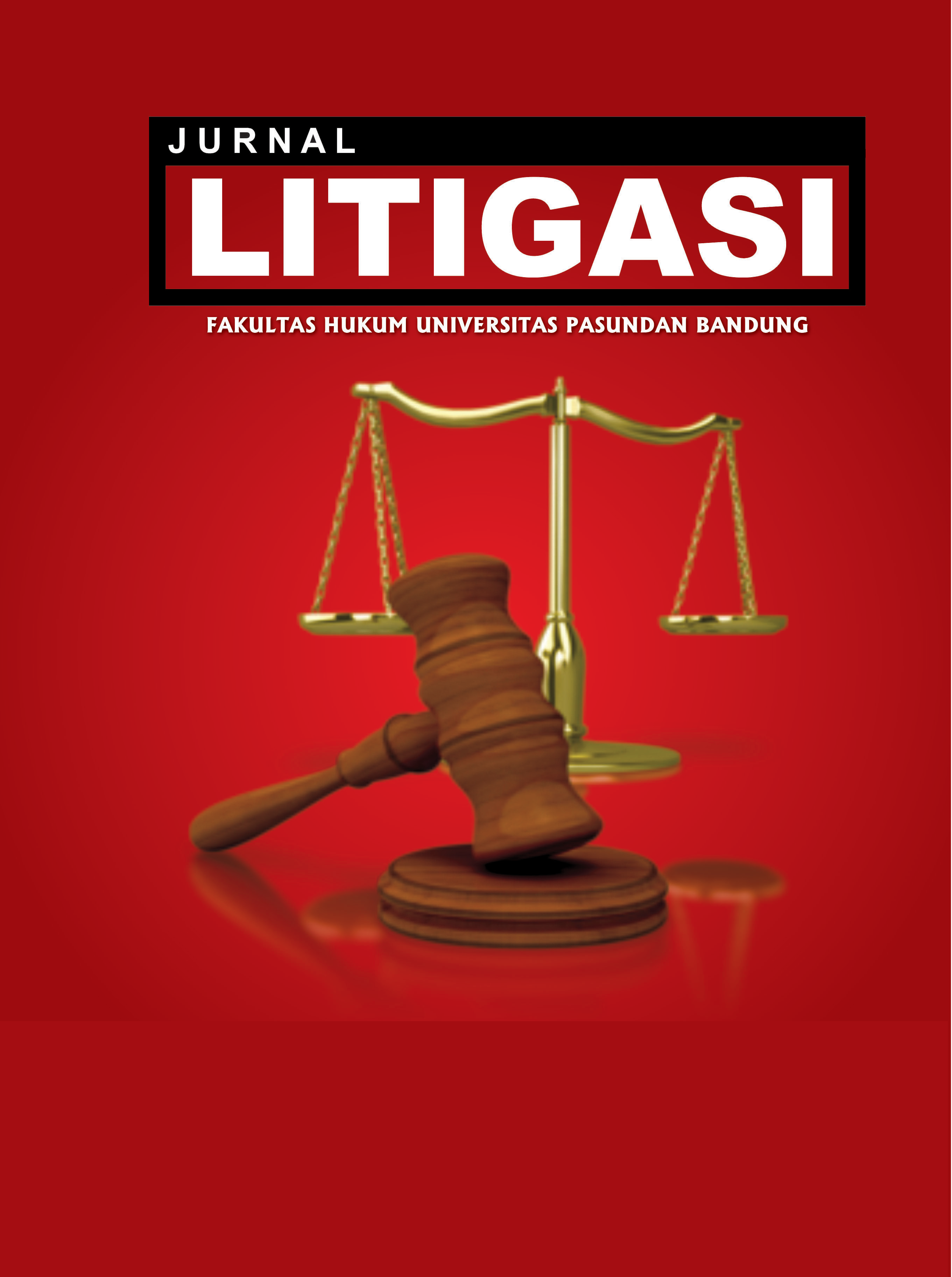IMPLEMENTASI MODEL PIDANA KERJA SOSIAL BERBASIS NILAI-NILAI HUKUM ADAT SUNDA
DOI:
https://doi.org/10.23969/litigasi.v22i2.4526Abstract
Criminal sanctions against perpetrators of corruption crimes require extraordinary breakthrough according to the penal objectives, which is not only to provide a deterrent effect for the perpetrators, but also to provide benefits to the community by optimizing the competencies held by the perpetrators, since perpetrators of corruption are competent either in the aspects of social, economics and politics. The current criminal sanctions do not lead to the utilization of the potential possessed by the perpetrators of criminal acts. The focus still leads to deter the perpetrators only by providing severe criminal sanctions, namely by accumulating criminal sanctions in prison and fines, as well as other additional sanctions that focus on perpetrators, not on to interests of the state and society. The result of the research is to conceive the concept of social work sanctions that utilize the competence/expertise of the perpetrators to be able to provide great benefits to the community directly which implementation is based on the values contained in Sundanese customary law, so that the objectives of the punishment are not only to correct the conduct of the perpetrators, but also to restore state financial losses, and to provide great benefits for the community.
Keywords: Sanction of Community Service, values, Sundanese Customary Law, Purpose of Punishment.
Downloads
References
Erdianto, K. (2018). ICJR : Belum Ada Teknis Pelaksanaan Sanksi Kerja Sosial dalam RKUHP. Kompas. https://nasional.kompas.com/read/2018/06/12/18263901/icjr-belum-ada-teknis-pelaksanaan-sanksi-kerja-sosial-dalam-rkuhp?page=all
Ginting, J. (2020). Sanksi Kerja Sosial Sebagai Alternatif Bentuk Pemidanaan Dalam Sistem Hukum Di Indonesia. Law Review, 19(3), 246. https://doi.org/10.19166/lr.v19i3.2098
Jaya, N. S. P. (2005). Relevansi Hukum Pidana Adat dalam Pembaharuan Hukum Pidana Nasional.
Jayus, J. A. (2020). Hukum Adat : TEORI, SEJARAH, PENGAKUAN NEGARA DAN YURISPRUDENSI.
Kurniawan, F. (2016). Hukum Pidana Adat sebagai Sumber Pembaharuan Hukum Pidana Nasional. Eduka: Jurnal Pendidikan, Hukum Dan Bisnis, 1(2), 10–31. http://www.openjournal.unpam.ac.id/index.php/Eduka/article/view/3739
Mulyadi, L. (2016). Eksistensi Hukum Pidana Adat di Indonesia : Pengkajian Asas, Norma, Teori, Praktik dan Prosedurnya.
Natalia, D. L. (2021). Indeks Persepsi Korupsi Indonesia Pada 2020 Melorot 3 Poin. Antara News. https://www.antaranews.com/berita/1972407/indeks-persepsi-korupsi-indonesia-pada-2020-melorot-3-poin
Suartha, I. D. M. (2015). Hukum dan Sanksi Adat dalam Perspektif Pembaharuan Hukum Pidana.
Sudirman, Yunus, A., & Arif, M. (2021). Implementasi Nilai-Nilai Hukum Adat Dalam Mewujudkan Hukum Yang Bersendikan Kearifan Lokal. Journal of Lex Generalis, 2(1), 89–106.
Sudiyat, I. (1991). Asas-asas Hukum Adat : Bekal Pengantar.
Susanto, A. F., Rahayu, M. I. F., Septianita, H., Tedjabuana, R., & Sukma, L. (2020). Pendidikan Hukum dan Kearifan Lokal Menuju Paradigma Akal Budi.
Triwulandari, I. G. A. A. M., & Darma, I. M. W. (2019). Reorientasi Paradigma Pembentukan Hukum Nasional dengan Mengadopsi Nilai Kearifan Lokal (Local Wisdom). Jurnal Gema Keadilan, 6(II), 196–216. https://ejournal2.undip.ac.id/index.php/gk/article/download/5871/3060
Downloads
Submitted
Accepted
Published
How to Cite
Issue
Section
License
Copyright (c) 2021 JURNAL LITIGASI (e-Journal)

This work is licensed under a Creative Commons Attribution 4.0 International License.
Copyright © 2026 Jurnal LITIGASI (e-Journal).
Jurnal LITIGASI (e-Journal) adopts the CC-BY license as the optimal license for publishing, distributing, using, and reusing scholarly work. Authors who publish with this journal retain copyright and grant the journal right of first publication with the work simultaneously licensed under a Creative Commons Attribution 4.0 International License (CC-BY 4.0). This license allows others to share, copy, distribute, and adapt the work, provided that the work's authorship and initial publication in this journal are properly cited.






























